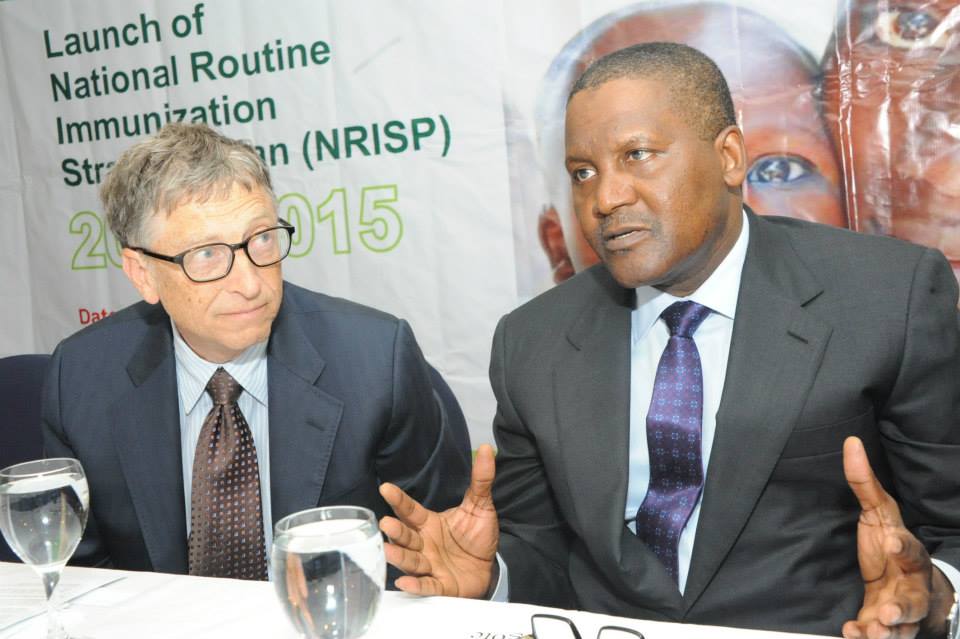Africa’s richest man Aliko Dangote recently opened up to Bloomberg Business on how he has managed to stay so successful and he says he owes it all to his tireless work ethic.
In the article published by Bloomberg, Dangote said he is surprised he gets up to four hours sleep some days.
Read the full article:
He’s feted like royalty. He has businesses ranging from cement to sugar to energy in a dozen sub-Saharan countries. He’s a fixture at elite gatherings such as the World Economic Forum in Davos, Switzerland. No
African has ridden the continent’s halting march out of poverty toward potential prosperity as spectacularly as its richest person, the Nigerian industrialist Aliko Dangote.
Dangote’s clout extends beyond the boardroom and the high-flier dinner circuit. In March, as votes were tallied in Nigeria’s presidential election, Dangote, 58, served as an intermediary between the camps of the incumbent, Goodluck Jonathan, and his ultimately victorious rival, Muhammadu Buhari. “There’s no question that he is quite an exceptional person—not only in Africa but globally,” says Mark Mobius, chairman of the emerging-markets group at Franklin Templeton Investments.
Today, Dangote is seeking to export his business empire and his influence beyond his terror-racked and corruption-riddled home country. Nigeria is responsible for about 85 percent of his fortune, which stood at $13.9 billion as of Sept. 9, according to the Bloomberg Billionaires Index. He’s planning new cement factories across Africa and as far afield as Nepal and Brazil. He’s considering taking Dangote Cement public on the London Stock Exchange and has even floated the idea of buying his beloved Arsenal, a top-ranking soccer club in the English Premier League. “I’m surprised I’m getting even four hours of sleep a day,” Dangote says. “We’re going ahead full steam.”
The wealth Dangote has amassed is particularly conspicuous in a country as poor as Nigeria, which the International Monetary Fund ranked 122nd in the world in gross domestic product per capita last year. “You
really see the inequalities,” then-president Jonathan said in May last year at a World Economic Forum conclave in Abuja, the Nigerian capital. Citing Dangote by name, Jonathan said, “Income distribution is skewed toward a few people.”
Dangote says his critics are being churlish. “Instead of studying how Dangote succeeded, they’re busy complaining,” he says. When he says that, he’s speaking above the thrum of his private jet as it makes its way back home to Lagos from Addis Ababa after an hourlong meeting with Ethiopian Prime Minister Hailemariam Desalegn. But compared with the lifestyles of some tycoons, Dangote’s is understated. Divorced from his wife, the mother of his three adult daughters, he lives on Lagos’s Victoria Island. It’s one of Africa’s most expensive neighborhoods, but the home is far from lavish. Adjacent to a Mitsubishi dealership, the house is sparsely decorated, with a modest half-moon-shaped swimming pool set in a small garden.

